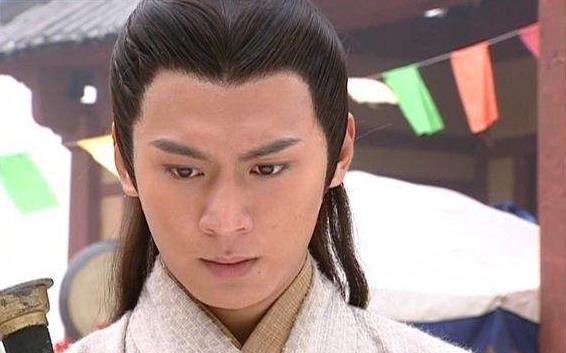
During the Western Han Dynasty, there were many powerful military generals, especially during the period of Emperor Wu of Han, at this time Emperor Wu of Han launched the Battle of Mobei, and thus began to take the initiative against the Xiongnu. Emperor Wu of Han was able to take the initiative to attack the Xiongnu, and he was definitely inextricably linked to these military generals. It is undeniable that Wei Qing, Huo Fuyi and others in this period played an important role.
These military generals all made meritorious contributions to the Western Han Dynasty. In addition to Wei Qing and Huo's illness, there was still an important military general during the period of Emperor Wu of Han, and he was Li Guang. The flying general Li Guang was undoubtedly a controversial military general, and in history, Li Guang's record was really not good. It is undeniable that Li Guang, the flying general in the early stage, made meritorious achievements.
However, later, Li Guang's exploits were very bad, especially during the Battle of Mobei, Li Guang actually got lost, and after His defender Qing humiliated Li Guang, after Li Guang, who was in his sixties, was insulted, he couldn't stand it at all, so he drew his sword and killed himself. It is worth mentioning that Li Guang's grandson Li Dare was killed by Huo's illness.
Then Li Guang has another grandson, his name is Li Ling. Speaking of this name, compared with Li Gan, the popularity is worse. On Li Ling's body, one thing happened, that is, Li Ling surrendered to the Xiongnu, which was undoubtedly a stain on Li Ling's body, and it became a stain on Li Guang, which really disgraced Li Guang.
You must know that even if Li Guang kills himself, he will not choose to surrender to the enemy. For thousands of years, the "Li Ling case" has been confusing people. What makes people confused is whether Li Ling surrendered to the enemy and committed treason because he was greedy for life and afraid of death, or whether he endured humiliation and stealing his life because he "will do something". To this day, the debate is still there.
Let's take a look at why Li Ling chose to defect to the enemy and commit treason. Li Ling was born in a large family of families, and his ancestor Li Xin was a former Qin general, and his grandfather Li Guang was famous for the Wenjing and Jing dynasties. With such a background, in the absence of imperial examinations in the Han Dynasty, Li Ling was undoubtedly able to be reused. After Li Ling entered the career path, he founded the "Jingchu" special force.
The history books evaluate this as "sharp and bold, fierce and not afraid of death", that is to say, Li Ling's youth has achieved success. So how did Li Ling perform on the battlefield? According to the records of the Book of Han, the reason why Li Ling defected to the enemy army at the last moment of life and death was that "if he listens to his words and watches his deeds, then no one will escape."
From another point of view, at this time, Li Ling had no determination to die at all. Li Ling had gone out alone to watch the enemy, and where Li Ling had gone had become a mystery. It is worth mentioning that after this observation of the enemy, Li Ling returned and said: "The soldiers are defeated and they are dead." From this sentence, it can be seen that Li Ling has a attachment to life.
No matter who it is, it must be attached to life, and there is nothing wrong with this. It is also the common sense of man. But the problem was that in Li Ling's body, there was an abnormal phenomenon, that is, from beginning to end, he did not dare to face his weakness and fear. This kind of cowardice and fear cannot be disguised, and when the war comes, Li Ling's original form is revealed.
At that time, Li Ling issued a message, "There are dozens of arrows that can be escaped." Now there are no soldiers to fight, only to be tied up" sigh. When the great war was imminent, Li Ling actually said such an exclamation, which was really not like the wind of a great general. From another point of view, this is the most sincere performance and confession of a person facing death.
The timidity and cowardice in Li Ling's heart could not be erased, and at that time, Li Ling also expressed the feeling of "repaying His Majesty without a face", and then directly chose to surrender. "Repaying Your Majesty without a Face" is undoubtedly similar to Wu Sangui's "big husband would rather not save his wife". Therefore, Li Ling's choice to surrender is fundamentally his inner thought.
Surrender was the truest wish of Li Ling's heart; martyrdom was only an excuse for him to block public opinion in the world. Excuses are excuses after all, and no one in the world believes Li Ling. That is to say, under the circumstances at that time, Li Ling was willing to surrender, which can be seen from the fact that Huo Guang later wanted to take back Li Ling, which was rejected by Li Ling.